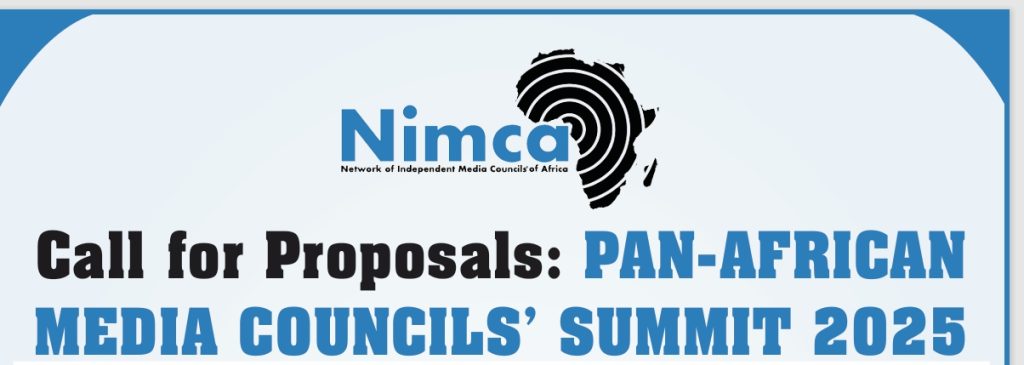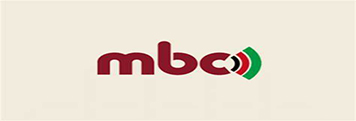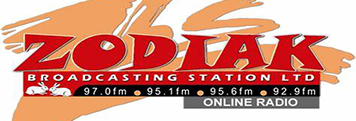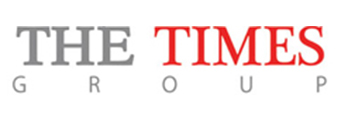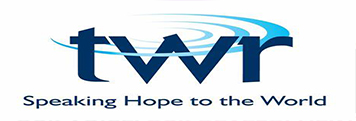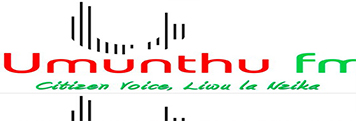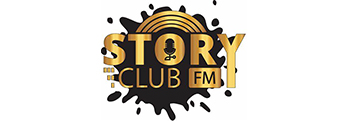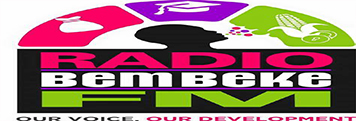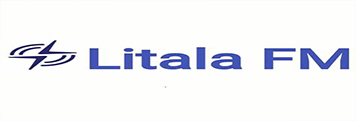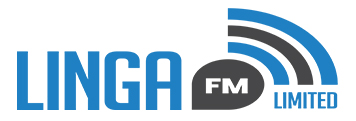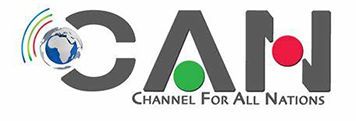The PAN-AFRICAN MEDIA COUNCILS’ SUMMIT 2025 organizing committee invites researchers,
academics, journalists, seasoned practitioners and media professionals to submit proposals
for the presentation of researched papers. The summit with the theme: Advancing media and
communication regulations for journalism excellence in Africa aims to explore critical issues
impacting the media landscape in Africa and beyond, focusing on media independence, media
economy, media sustainability, climate change, and the role of media, media regulations,
and contemporary issues affecting the media’s critical roles of agenda setting, information
dissemination, and watchdog functions.
KEY THEMES AND TOPICS
Thematic Area 1: Inclusiveness and People with Disabilities in Topical Discussions
- Promoting Inclusivity and Diversity
Justification: Establishing legal and regulatory policies that prioritize inclusiveness and people with
disabilities is essential for ensuring equal opportunities in the digital media landscape. Inclusivity
fosters a diverse and representative media environment where all voices are heard and respected. - Accessibility in Digital Media and AI
Justification: People with disabilities often face barriers to accessing digital content and services.
Policies that mandate accessibility standards, such as screen readers, captioning, and adaptive
technologies, will empower individuals with disabilities to fully participate in the digital world. - Achieving Sustainable Development Goals (SDGs)
Justification: Inclusive new media and digital media policies directly contribute to several SDGs,
including:
SDG 4 (Quality Education): Accessible digital media can enhance educational opportunities for
people with disabilities, providing them with the resources needed to succeed.
SDG 8 (Decent Work and Economic Growth): Inclusive digital media practices can create job
opportunities for people with disabilities, fostering economic growth and reducing inequalities.
SDG 10 (Reduced Inequalities): By addressing the needs of people with disabilities, media policies
can help reduce social and economic disparities, promoting a more equitable society.
SDG 16 (Peace, Justice, and Strong Institutions): Inclusive media policies strengthen democratic
institutions by ensuring that all citizens have access to information and can participate in public
discourse. - Ethical Use of AI and Digital Media
Justification: AI and digital media technologies must be developed and deployed ethically, with
consideration for the diverse needs of all users. Legal frameworks that prioritize inclusiveness will
ensure that AI systems do not perpetuate biases or exclude people with disabilities. - Building Public Trust and Engagement
Justification: Inclusive policies enhance public trust in digital media and AI by demonstrating a
commitment to social justice and equality. Engaging people with disabilities in the policymaking
process ensures that their perspectives and experiences are considered, leading to more effective
and equitable outcomes.
Expected Outcomes on Key Thematic Area 1 - Comprehensive legal and regulatory frameworks that prioritize inclusiveness and accessibility
for people with disabilities. - Enhanced opportunities for people with disabilities to access and contribute to digital media
and AI. - Progress towards achieving relevant SDGs by promoting education, economic growth, reduced
inequalities, and strong institutions. - Increased public trust in digital media and AI through ethical practices and inclusive policies.
- Guaranteed Employment for millions of African youth and women
Thematic Area 2: Digital Media and Communications, Ethics and Responsibility
o Justification: The rapid growth of digital media has introduced new ethical challenges, including
misinformation, privacy breaches, and content manipulation. Establishing clear ethical guidelines
and accountability measures is essential to maintain public trust and safeguard users’ rights. - Regulation of AI in Media and Communications: Ensuring Transparency and Accountability
o Justification: AI technologies have the potential to revolutionize media, but their use must be
transparent and accountable. Regulations should address issues such as algorithmic bias, data
privacy, and the ethical implications of AI-generated content. - Data Privacy and Protection in Digital Media
o Justification: The collection and use of personal data by digital media platforms pose significant
privacy risks. Developing robust data protection laws and guidelines will help protect users’
personal information and ensure their data is used responsibly. - Combatting Misinformation and Fake News
o Justification: The spread of misinformation and fake news undermines public trust in media
and can have serious societal consequences. Legal frameworks and guidelines are needed to
hold platforms accountable and promote the dissemination of accurate information. - Intellectual Property Rights in the Digital Age
o Justification: The digital age has transformed the way content is created, shared, and consumed.
Updating intellectual property laws to protect creators’ rights while balancing the needs of
users is crucial for fostering innovation and creativity. - Media Literacy and Digital Citizenship
o Justification: As the world moves from large screens to small screens and digital media becomes
more prevalent, it is important to educate and sensitize the public about media literacy and
responsible digital citizenship. Legal and regulatory policies should support educational
initiatives that empower individuals to critically engage with digital content. - Cyber Security for Traditional and New Media Organizations
o Justification: Media and communications organizations are increasingly targeted by cyberattacks,
which can compromise their operations and the integrity of their content. Establishing
cyber security standards and protocols will help protect media outlets from such threats.
Expected Outcomes on Key Thematic Area 2
- Comprehensive legal and regulatory frameworks that address the unique challenges of digital
media and AI. - Enhanced protection of users’ rights, including privacy, data security, and intellectual property.
- Increased public trust in digital media platforms through the promotion of ethical practices and
accountability. - Empowered individuals who are better equipped to navigate the digital media and communications
landscape responsibly.
Submission Guidelines
- Abstract Submission: Submit a 700–900-word abstract outlining the significance of the
professional paper in line with the expected outcomes of the Summit. - Full Paper Submission: If the abstract is accepted, submit a full paper (4,000-6,000 words)
detailing the significance of the professional paper backed up by research, analysis, and
conclusions. - Formatting Requirements: Papers should be submitted in Microsoft Word format, Excel, PPT,
using Calibri, 12-point font, double-spaced. Include references in APA style. - Submission Deadline: Abstracts must be submitted by 18th March 2025. Full papers are due
by 30th April 2025. - Review Process: All submissions will be peer-reviewed by the NIMCA Technical Team and a panel
of experts. Authors will be notified of acceptance within 10 working days of the submission
deadline.
Important Dates
- Abstract Submission Deadline: 18th March, 2025
- Notification of Abstract Acceptance: 25th March 2025
- Full Paper Submission Deadline: 30th April 2025
- Notification of Full Paper Acceptance: 14th May, 2025
- Summit Dates: 14th – 17th July 2025
- Delegates Arrival Date: 13th July, 2025
- Delegates Departure Date: 18th July, 2025
Submission Process
Email Submissions: Submit abstracts and full papers to connect@nimca.africa and copying
josephat@mct.or.tz and ziada@mct.or.tz
Contact Information
For any inquiries or further information, please contact: - Head of Summit Content, Communications, Branding and Media Campaigns Sub-committee:
Josephat Mwanzi + 255 784 485 438 - Email: connect@nimca.africa
- or Head on NIMCA Secretariat: Ziada Kilobo +255 754 019 951
Conference Location - Venue: Arusha International Conference Centre
- City, Country: Arusha, Tanzania
We look forward to your valuable contributions to the PAN-AFRICAN MEDIA COUNCILS’ SUMMIT
2025 and Advancing media and communication regulations for journalism excellence in Africa.
You can downalod the document here:

